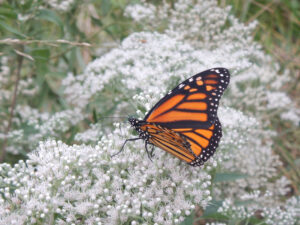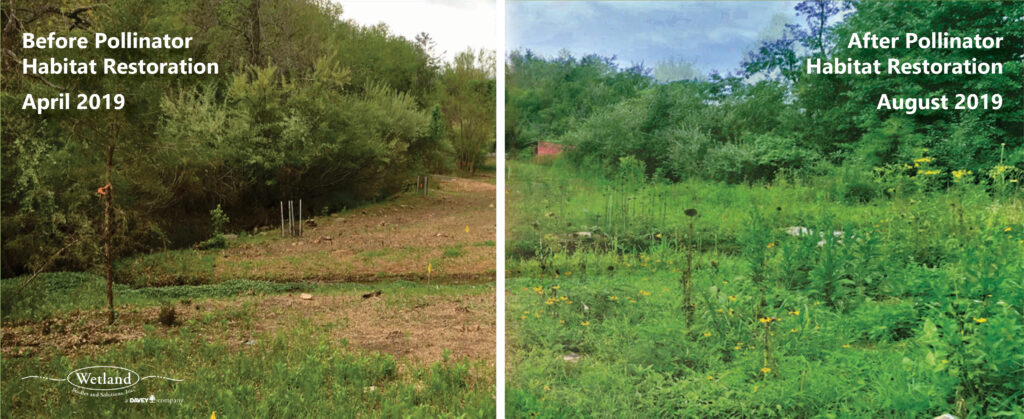
“Thanks to the monarch agreement, more than 45 companies in the energy and transportation sectors and countless private landowners will provide habitat for the species along energy and transportation rights-of-way corridors on public and private lands across the country.” USFWS, April 8, 2020
Utilities, energy companies, and state Departments of Transportation (DOTs) who manage extensive rights-of-way and other lands face an uncertain future for their infrastructure maintenance and modernization activities. The monarch butterfly, for which those lands provide migration corridors and habitat, may be a candidate for listing as a threatened or endangered species by the end of 2020 due to declining habitat; that listing would bring implications for traditional land management in those corridors. Wetland Studies and Solutions, Inc. (WSSI) can help you evaluate your lands for the best management options, including participation in the Monarch Butterfly Candidate Conservation Agreement with Assurances (CCAA).
Enacted in April 2020, this CCAA is a tool to implement voluntary conservation measures and, in exchange, receive assurance that defined maintenance and modernization activities can occur on designated lands without potential additional requirements if the monarch is ultimately listed. Collectively, the energy and transportation sectors have the potential through this agreement to provide enough voluntary conservation benefit to defer a listing decision.

Before and after WSSI restored pollinator habitat in this right of way corridor.
What is the Monarch CCAA?
The Monarch CCAA is one type of CCAA. A CCAA is a voluntary conservation agreement between the U.S. Fish and Wildlife Service (USFWS) and public or private parties to provide conservation for a species that in the future may be listed as threatened or endangered. The Monarch CCAA, developed with industry, regulatory, scientific and stakeholder community input, is designed expressly for the at-risk monarch butterfly species and tailored to the energy and transportation sectors.
In structure, the Monarch CCAA is a voluntary, formal nationwide programmatic agreement between USFWS and its Program Administrator, the University of Illinois at Chicago (UIC), and it can include potential Partners, i.e., energy and transportation companies and agencies who apply to enroll lands in the lower 48 states in the CCAA. Partners commit during the term of the agreement to address threats to the monarch butterfly species while adopting conservation measures targeted to improve monarch survival and thus reduce the chance of federal listing. This nationwide programmatic agreement seeks to expand the network of widespread habitat conservation through a network of Partner lands, encompassing electric power generation, electric transmission and distribution, oil and gas transmission and distribution, renewable energy development and the network of DOTs.
Benefits offered by the Monarch CCAA include:
- Regulatory certainty, particularly critical for large, complex, controversial, and long-duration projects.
- Reduced risk exposure to project schedule and cost.
- Increased protection of threatened candidate species.
- Documented, verifiable commitment to environmental stewardship and species protection.
- Flexibility in design and implementation of commitments under the CCAA.
- Potential reduced likelihood of federal listing for candidate species; steps taken now may reduce species regulation in future projects.
Is the Monarch CCAA right for you?
Decreased regulatory uncertainty for right of way management and a platform to demonstrate environmental stewardship make this CCAA a valuable opportunity for energy companies and state DOTs willing to make the commitments.
WSSI can help you weigh the costs and benefits of enrolling some or all of your system in the Monarch CCAA. Our environmental scientists, vegetation managers, and energy professionals can partner with you and your team to deliver a holistic solution reflecting your budget and operational constraints. Contact our staff to discuss how a CCAA may fit into your right of way management.
